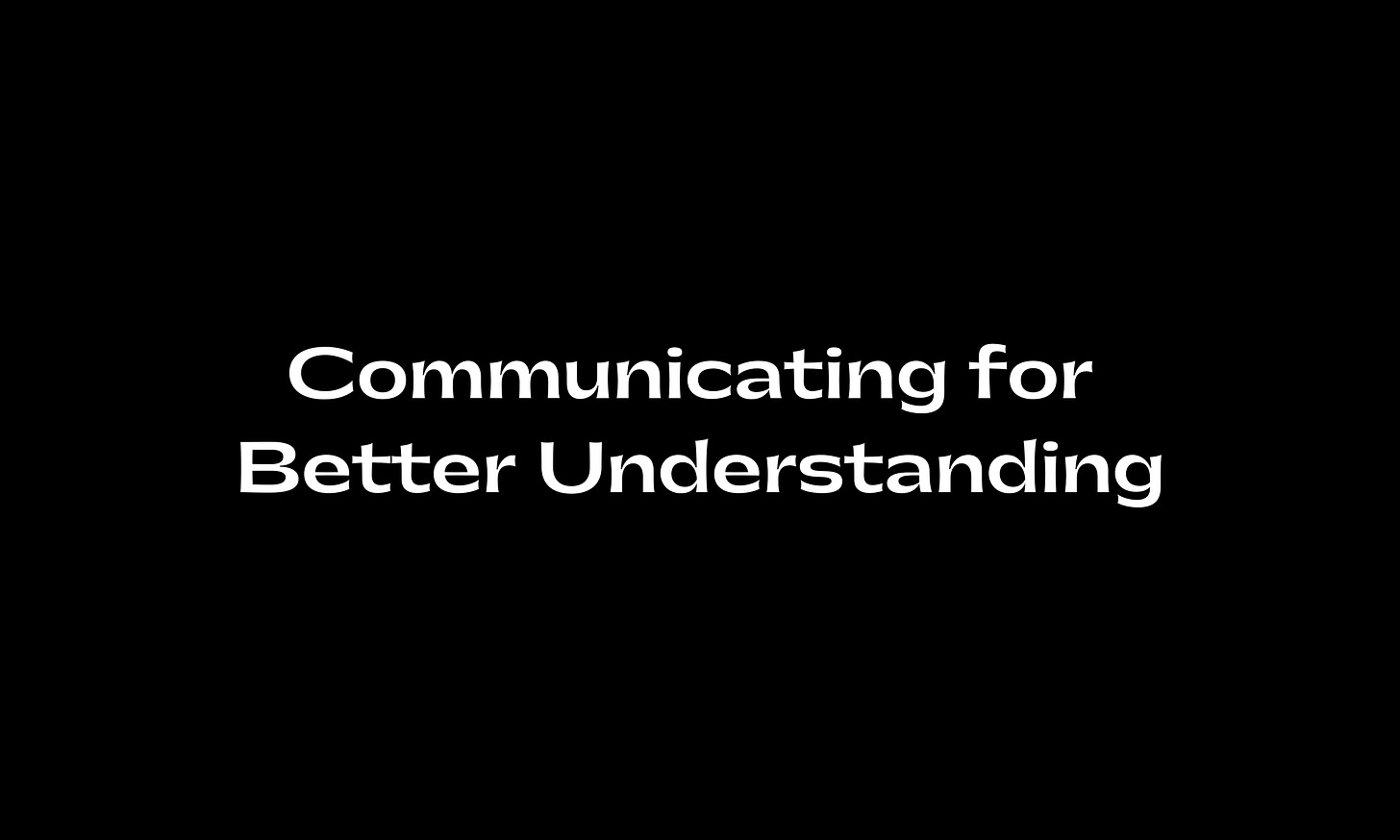Discussing the 'Wrong Question'
We get focused on an incorrect, unhelpful topic or angle within a conversation
Focusing on the wrong topic or angle of a problem can act as a block to the necessary understanding to helpfully move through a conversation or address problems.
“The most serious mistakes are not being made as a result of wrong answers,” said Peter Drucker, the late management consultant, educator and author, whose writings contributed to the foundations of modern management theory. “The truly dangerous thing is asking the wrong questions.”
Jordan Peterson, a psychologist, author and media commentator, has also spoken about the challenge of our curiosity.
“One of the things that strikes me about intellectual life is how often we get the questions wrong and we often get them backwards,” he said in a speech.
There is a brief, interesting interaction on social media between professional basketball superstar Giannis Antetokounmpo and a reporter where a frustrated Antetokounmpo tries to lend perspective to a question about success.
He too points out how the inquisitiveness is misdirected.
“So why do you ask me that question, it’s a wrong question,” Antetokounmpo said.
People who are posing questions, of course, don’t think that what they are asking is taking the conversation off track and preventing useful information or understanding. Truth is what they are asking may be exactly what they are curious about and the smartest path forward, maybe just not always.
To be fair, there is manipulation to consider when dealing with certain people.
“If they can get you asking the wrong questions, they don't have to worry about answers,” wrote novelist Thomas Pynchon wrote in his book, Gravity's Rainbow.

John Maxwell, the noted author and speaker on leadership asks people about how creative their thinking is, inferring that what stands in the way of clarity and better understanding is how we are perceiving and processing.
He suggests that there may be a better way of communicating to learn and find the answers, maybe much better ones. He offers suggestions to consider:
Why must it be done this way?
What is the root problem?
What are the underlying issues?
What does this remind me of?
What is the opposite?
What metaphor or symbol helps to explain it?
Why is it important?
What’s the hardest or most expensive way to do it?
Who has a different perspective on this?
What happens if we don’t do it at all?
There are questions and then there are more beneficial ones. Which ones are we asking and when will we know whether they are the curiosity that will lead us to smarter insights to learn, know and use to move forward?
To develop our thinking to asking what is more likely to be the smarter or “right” questions will prove highly productive and protective.
To sponsor this publication, place an ad or have links published, check this page.
Please consider following Communication Intelligence at the LinkedIn company page





